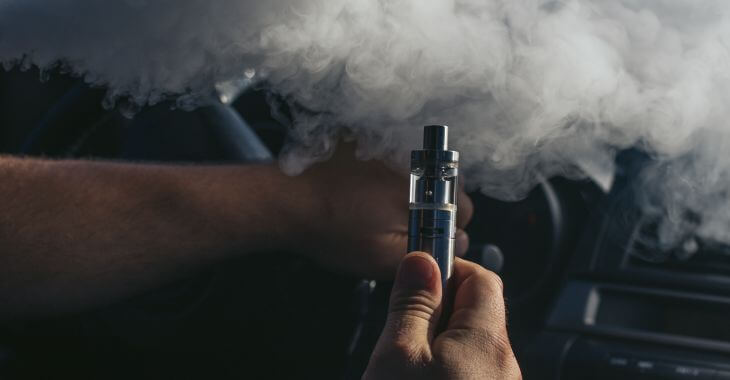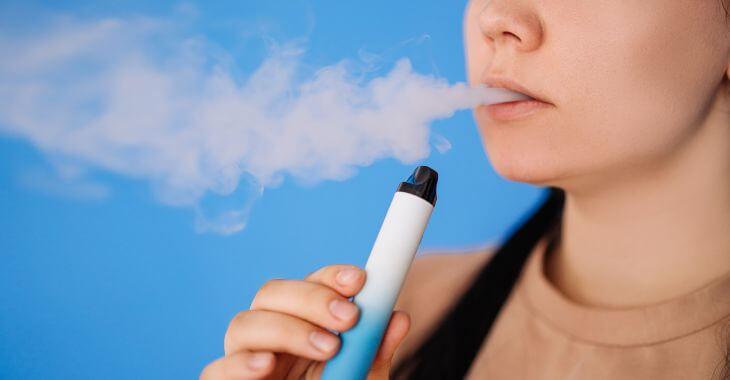Can You Vape After Tooth Extraction?

Vaping after a tooth extraction is a topic of concern for many individuals, particularly those who are regular vapers. Can you vape after tooth extraction? Most dentists will warn against vaping as part of the post-procedure instructions. Here is what you need to know about vaping after tooth extraction.
A tooth extraction is a dental procedure that involves removing a tooth from its socket in the jawbone, and it is often performed due to severe dental problems, including decay, infection, or trauma. After the procedure, it is essential to follow post-operative instructions, including avoiding vaping.
Avoidance of Smoking and Vaping After Tooth Extraction
Dentists and oral surgeons typically advise against smoking or vaping after tooth extractions for several important reasons:
- Risk of Infection: Smoking and vaping introduce harmful chemicals and particles into the mouth, which can increase the risk of infection at the extraction site. Nicotine, in particular, can constrict blood vessels, reducing blood flow to the healing area, slowing down the body’s natural healing processes, and making it easier for bacteria to thrive.
- Dry Socket: Dry socket (alveolar osteitis) is a painful complication that can occur after a tooth extraction when the blood clot that forms in the socket becomes dislodged or dissolves prematurely. Smoking and vaping, due to the suction and heat involved, can disrupt the clot and increase the likelihood of developing dry socket.
- Delayed Healing: Smoking and vaping can interfere with the normal healing process. The heat from vaping devices can irritate the surgical site and hinder the formation of healthy tissue. Nicotine and other harmful substances in e-cigarettes can have adverse effects on blood vessels and tissues, slowing down healing.
- Increased Pain and Swelling: Smoking and vaping can lead to increased pain and swelling after a tooth extraction. The heat and chemicals can irritate the surgical site, making it more uncomfortable.
The action of vaping can be detrimental in the days after a tooth extraction, which is why dentists warn against both vaping and smoking. There are also other factors about vaping to consider, especially e-cigarettes that contain nicotine.
Nicotine’s Impact on Healing
Nicotine, a common component in both traditional cigarettes and e-cigarettes, has detrimental effects on the body’s ability to heal after surgery or injury. Here’s how nicotine can affect the healing process:
- Vasoconstriction: Nicotine constricts blood vessels, reducing blood flow to the surgical site. This can deprive the healing tissues of essential oxygen and nutrients, slowing down the recovery process.
- Impaired Immune Response: Nicotine suppresses the immune system, making it less effective at fighting infections. This can increase the risk of post-operative complications.
- Increased Pain Sensitivity: Nicotine can increase pain sensitivity, making the discomfort associated with tooth extraction more pronounced.
If you are a regular vaper and are concerned about managing nicotine withdrawal during the recovery period after a tooth extraction, it’s essential to explore alternative nicotine replacement options or cessation strategies that are less harmful to healing and oral health.
When Can You Vape After Tooth Extraction?
It’s crucial to consult with your dentist or oral surgeon before making any decisions about vaping or smoking after a tooth extraction. They can provide personalized recommendations based on your specific situation, including the complexity of the extraction, your overall health, and your history of smoking or vaping.
In some cases, your dental healthcare provider may strongly advise complete abstinence from smoking or vaping for a specified period after the procedure to ensure optimal healing and minimize risks. They can also provide guidance on how to manage nicotine cravings and withdrawal symptoms during this time.
When Can I Vape After Wisdom Teeth Removal?
It is generally recommended that you avoid vaping or smoking for at least 24 hours after a wisdom tooth removal or any tooth extraction. This is because the suction motion involved in smoking or vaping can dislodge the blood clot that forms in the socket where the tooth was removed, which can lead to dry socket. Dry socket can delay the healing process and may require additional treatment to manage. Additionally, smoking and vaping can also delay the healing process and increase the risk of infection. It is best to follow your dentist’s specific instructions for aftercare following a wisdom tooth extraction, as everyone’s situation may be different.
Follow Post-Operative Instructions
Regardless of your decision regarding vaping or smoking, it’s essential to follow all post-operative instructions provided by your dental healthcare provider. These instructions are designed to promote healing, reduce the risk of complications, and ensure a smoother recovery. They typically include:
- Avoiding smoking or vaping (and any form of tobacco use) for the specified period.
- Gently rinsing your mouth with warm saltwater as directed.
- Taking prescribed medications, including antibiotics and pain relievers, as prescribed.
- Adhering to a soft or liquid diet for the initial days following the extraction.
- Avoiding strenuous physical activity.
- Keeping the surgical area clean and avoiding excessive spitting or rinsing.

While vaping after a tooth extraction may not seem harmful, it’s associated with several risks and can potentially interfere with the healing process. When can you vape after a tooth extraction? The best approach is to consult with your dentist and follow their recommendations.
The information provided on this website, including text, graphics, images, and other materials, is intended solely for informational purposes and should not be used as a substitute for professional medical advice, diagnosis, or treatment.




)